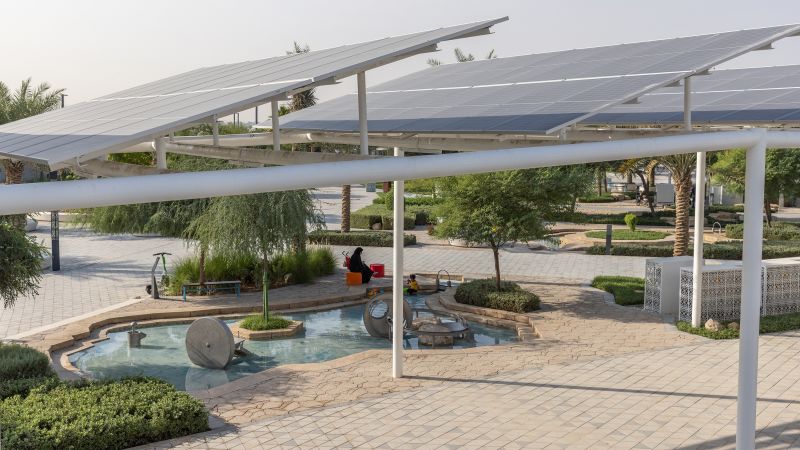
Urban areas are getting hotter. A startup from one of the world’s hottest cities wants to help
CNN
Climate change is impacting urban areas especially hard, but FortyGuard believes data can help efforts to cool cities down.
Climate change is impacting urban areas especially hard, and densely populated cities are suffering the most. The urban heat island effect means that city temperatures can be several degrees higher than nearby rural regions. That’s because materials like concrete and asphalt absorb and radiate heat. Vehicles and air-conditioning units expel heat, and towering buildings block wind flow. Officials across the globe are trying to cool cities down. In Chicago, which has a history of fatal heatwaves, more than 500 rooftops have been covered with vegetation, which releases cooling water vapor and acts as natural insulation for the building. Los Angeles, which has a vast network of freeways, has painted some of its roads with a solar-reflective material. But detailed information about urban temperatures is scarce. That became clear to entrepreneur Jay Sadiq soon after he founded a startup in Abu Dhabi to modify asphalt to absorb less heat, when a potential client encouraged him to identify the hottest parts of the city, where the material would be most beneficial. Sadiq couldn’t find the level of granular data he needed, so he started working on harnessing the information himself. Today, his company FortyGuard is focused on leveraging data and artificial intelligence (AI) technology to provide a detailed view of urban temperature dynamics. He hopes that it will enable urban planners, chief heat officers, businesses, and real estate developers to make data-driven decisions, and residents to better plan their lives.













